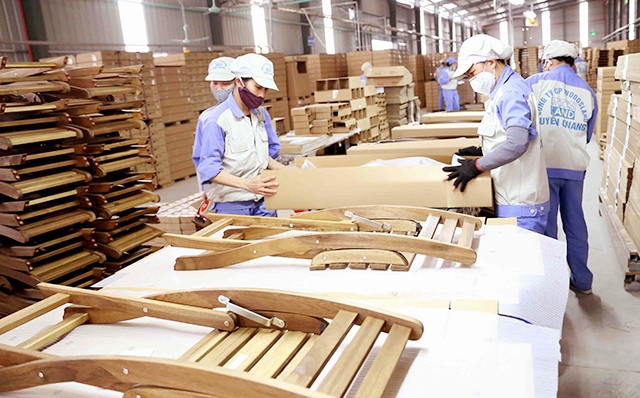“The SBV also needs to effectively use management tools to appropriately regulate foreign exchange rates and interest rates with an aim to meet capital needs for the economy and maintain stability in the monetary, foreign exchange and gold markets, besides ensuring the safety of the credit institution system,” the PM noted.

HÀ NỘI — The Prime Minister Phạm Minh Chính has directed the State Bank of Vietnam (SBV) and the Ministry of Finance (MoF) to promptly respond to the impacts of the US's reciprocal tariff policy.
Under a direction on a number of key tasks and solutions to promote economic growth in 2025 issued this week, the PM has required the agencies to maintain market stability and support businesses affected by tariffs.
Specifically, the PM has requested the SBV to closely monitor the international and regional situation, as well as policy adjustments of major economies.
“The SBV also needs to effectively use management tools to appropriately regulate foreign exchange rates and interest rates with an aim to meet capital needs for the economy and maintain stability in the monetary, foreign exchange and gold markets, besides ensuring the safety of the credit institution system,” the PM noted.
In addition, the SBV must continue to direct credit institutions to reduce costs and promote digital transformation to strive to reduce lending interest rates.
Banks need to direct credit to production and business sectors, priority sectors, growth drivers and promote short-term lending to support businesses affected by US tariff policies.
In addition to providing preferential credit packages for people under 35 years old, so they can buy homes and businesses investing in infrastructure and digital technology, banks must expand the packages to the forestry, aquatic and wooden product sectors affected by the US tariff policy, the PM said.
Meanwhile, the PM has assigned the MoF to review and assess the impact of the US's reciprocal tax policy on Việt Nam and report it to competent authorities this month, with an aim of developing fiscal support policies for businesses and workers in industries and sectors affected by the tariff changes.
The MoF also needs to preside over and coordinate with relevant agencies to develop a plan to optimise the capital raising from the State, businesses and people for development investment.
“The ministry should use the remaining room for public debt and State budget deficit to mobilise capital for development,” the PM suggests.
The PM also requires the MoF to work with the Asian Development Bank (ADB) to prepare projects on infrastructure investment, climate change adaptation and green growth.
In addition, the MoF is also directed to urgently complete a private economic development project and submit it to competent authorities for consideration and approval.
“The project must include feasible and breakthrough policies to encourage, promote and create a favourable and equal investment and business environment for private economic development,” the PM emphasised. — BIZHUB/VNS





